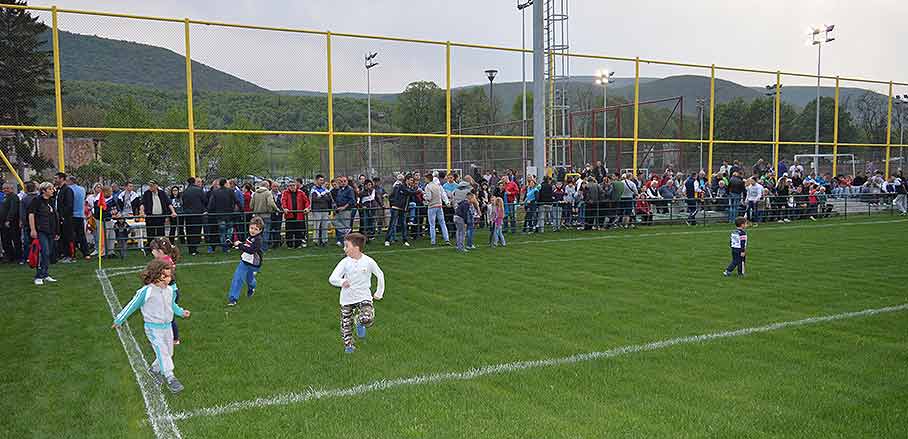Municipalities in Eastern Serbia Champion Property Tax Collection
By Daniela Kostadinova
In 2015, nine municipalities in Eastern Serbia registered a 123% increase in the property tax collection rate, thanks to the financial and technical assistance of the “Municipal Economic Development in Eastern Serbia” project. This increase has already generated additional budgetary funds of 1,634,000 Euros, to be invested in priority community development projects, which will enhance the quality of life for all citizens.
The project has financed the engagement of field enumerators in nine municipalities to update existing taxpayers’ registers. In some municipalities, property tax databases had not been updated for more than 15 years, leaving 25% of property outside the taxation scope. An illustrative example is the municipality of Sokobanja. In 2013, there were only 308 tax applications, while in 2014, this number increased 10-fold, only by registering weekend cottages.
The model introduced by the Deutsche Gesellschaft für Internationale Zusammenarbeit GmbH (GIZ) and the Swiss Agency for Development and Cooperation (SDC) focused on registering all forms of property instead of increasing tax rates on already registered property and burdening all citizens. “The approach implemented by these nine municipalities is fairer, since now everybody pays taxes. This means that, in the long run, people will pay less money, but the local government would still have more assets than before”, explains Mr. Grunauer, leader of the aforementioned project.
– Everyone can already feel the benefits from paying property taxes. For example, in 2015, we have been able to decrease the tax base for private real estate by 20-30 percent, adds mayor of Negotin Jovan Milovanovic.
Since 2013, numerous trainings and workshops for Local Tax Administrations’ (LTA) staff have been organised, equipping the participants with knowledge and skills to efficiently perform their work. “The workshops helped us to improve both regular and enforced tax collection and to effectively implement legal provisions”, says Tatjana Stojic, Head of LTA in Veliko Gradiste.
An additional incentive to improve tax collection practices was provided through the SDC Incentive Fund worth one million CHF (approx. 919,000 Euro), given to the municipalities that achieved the best results in property tax collection. The top five – Boljevac, Negotin, Sokobanja, Veliko Gradište and Zaječar – received funding, ranging from 75,000 to 400,000 CHF, for financing priority local development projects. These projects focus on enhancement of tourism, energy efficiency, environmental protection, infrastructure and improvement of public services. Citizens had been informed about the property tax reform and its purpose from the beginning through public outreach and the cross-municipal information campaign “Our money builds our town”. To ensure citizen involvement in deciding what the tax surplus money should be invested in, public debates and consultations were organized and relevant information was disseminated through local media outlets. Thus, the citizens were provided not only with an insight into the development and infrastructure projects the municipality was planning to fund with money from the taxpayers’ pocket, but were also able to provide feedback.
One of the most important achievements of property tax collection is the improvement of the national monitoring framework for property tax collection. Its performance-based criteria for property taxation were developed jointly by the Ministry of Finance (MoF), Standing Conference of Towns and Municipalities (SCTM), and the Municipal Economic Development project. This endeavour also lead to the Ministry of Finance including the criteria into the Draft Law on Local Self Government Financing, thus providing a perspective for a substantial long-term incentive for municipalities to be more proactive and efficient in the implementation of the local tax policies.
The experiences that were gained during the course of the project continue to be shared through Inter-Municipal Working Groups (IMWGs) and SCTM. The main idea is to encourage other municipalities in Serbia to increase their own revenues by following the piloted taxation model, and thus generate more funds to be invested on the local level in the economic growth of their communities.
- Municipalities in Eastern Serbia Champion Property Tax Collection - 20. September 2016
